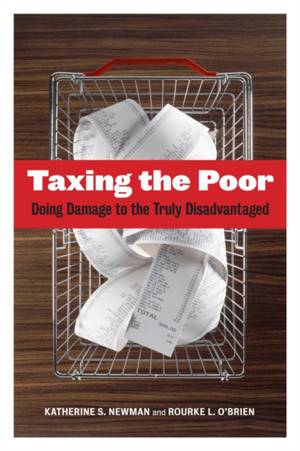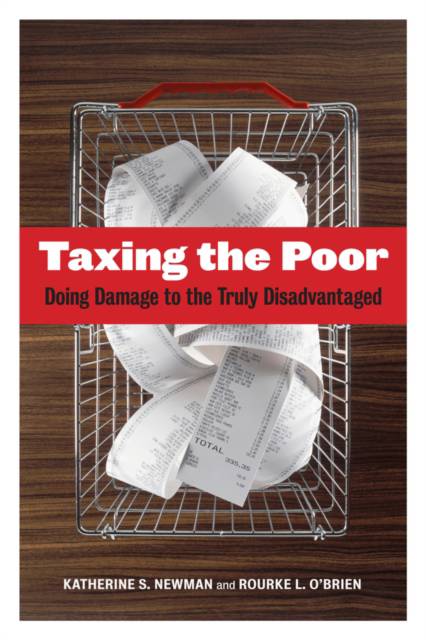
- Afhalen na 1 uur in een winkel met voorraad
- Gratis thuislevering in België vanaf € 30
- Ruim aanbod met 7 miljoen producten
- Afhalen na 1 uur in een winkel met voorraad
- Gratis thuislevering in België vanaf € 30
- Ruim aanbod met 7 miljoen producten
Zoeken
€ 50,95
+ 101 punten
Omschrijving
This book looks at the way we tax the poor in the United States, particularly in the American South, where poor families are often subject to income taxes, and where regressive sales taxes apply even to food for home consumption. Katherine S. Newman and Rourke L. O'Brien argue that these policies contribute in unrecognized ways to poverty-related problems like obesity, early mortality, the high school dropout rates, teen pregnancy, and crime. They show how, decades before California's passage of Proposition 13, many southern states implemented legislation that makes it almost impossible to raise property or corporate taxes, a pattern now growing in the western states. Taxing the Poor demonstrates how sales taxes intended to replace the missing revenue--taxes that at first glance appear fair--actually punish the poor and exacerbate the very conditions that drove them into poverty in the first place.
Specificaties
Betrokkenen
- Auteur(s):
- Uitgeverij:
Inhoud
- Aantal bladzijden:
- 264
- Taal:
- Engels
- Reeks:
- Reeksnummer:
- nr. 7
Eigenschappen
- Productcode (EAN):
- 9780520269675
- Verschijningsdatum:
- 27/02/2011
- Uitvoering:
- Paperback
- Formaat:
- Trade paperback (VS)
- Afmetingen:
- 140 mm x 206 mm
- Gewicht:
- 299 g

Alleen bij Standaard Boekhandel
+ 101 punten op je klantenkaart van Standaard Boekhandel
Beoordelingen
We publiceren alleen reviews die voldoen aan de voorwaarden voor reviews. Bekijk onze voorwaarden voor reviews.











